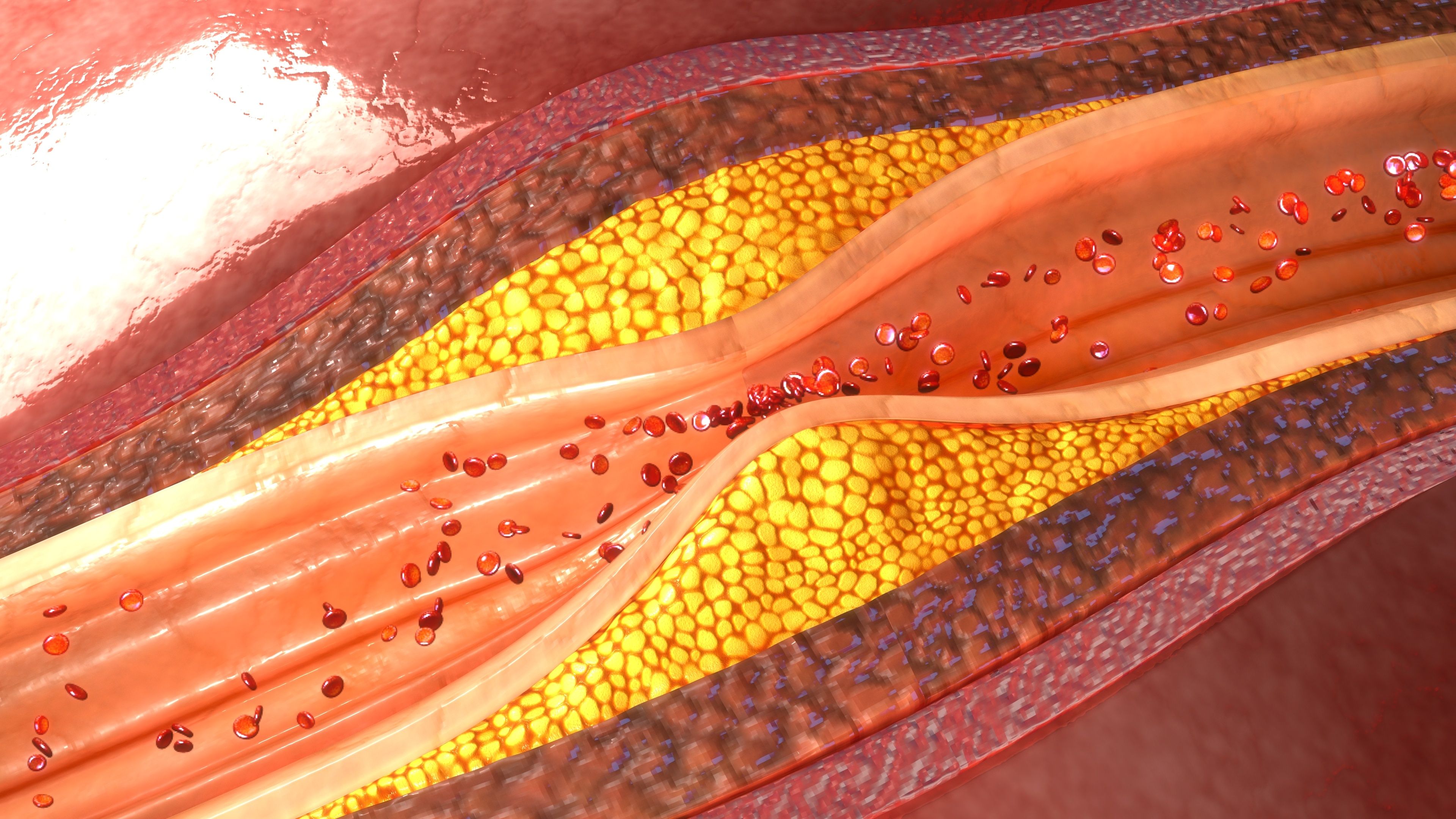Study Details Impact of Diet, Exercise on Plaque Progression in Coronary Artery Disease
A randomized trial provides further insight into the effects of intensive lifestyle interventions on coronary plaque progression in patients with nonobstructive coronary artery disease.
This article originally appeared on EndocrinologyNetwork.com.

A new study from Poland’s National Institute of Cardiology is detailing the effects of intensive lifestyle interventions on coronary plaque regression on CTA images in patients with nonobstructive coronary artery disease.
A randomized trial including more than 90 patients, results of the study highlight the ability of controlled diet and lifestyle intervention with optimized medical therapy in slowing the progression of atherosclerosis and reducing noncalcified plaque volume.
“The results of our study show that a comprehensive lifestyle intervention embracing systematic dietary counseling and physical activity check (DISCO intervention) may be effective in slowing the progression of atherosclerosis and decreasing plaque vulnerability in the population of patients with nonobstructive coronary atherosclerosis,” wrote study investigators.
With an interest in describing the impact of diet and lifestyle intervention in patients with nonobstructive coronary disease, a team from the National Institute of Cardiology in Warsaw, Poland created the Dietary Intervention to Stop Coronary Atherosclerosis in Computed Tomography (DISCO-CT) study. DISCO-CT was designed as a single-center, randomized trial of patients with coronary artery disease confirmed with CTA—patients in the trial were randomized to an intervention arm or optimized medical therapy.
Patients randomized to the intervention arm were asked to follow-up with a dietitian, adhere to a diet based on the DASH model, and increase physical activity for 12 months. The primary outcome of the analyses was change in atheroma volume and plaque composition. In total, 92 nondiabetic patients underwent randomization, of which 91 completed the study.
Investigators noted 2 patients were excluded from the analyses due to suboptimal CTA image quality, resulting in 89 patients being included in the final analysis. Patients included in the study underwent CTA at baseline and after a mean of 66.9±13.7 weeks.
Upon completion of the trial, investigators found percent atheroma volume was increased among patients randomized to optimal medical therapy alone (1.1±3.4%; P=.033) and there was no significant change among those in the intervention arm (1.0±4.2% P=.0127) (Intergroup P=.851). When assessing noncalcified plaque, investigators noted reductions in both groups but pointed out reductions appeared to be greater among those in the intervention arm (-51.3±79.5mm3 [-1.7±2.7%];P <.001) than the control arm (-21.3±57.7 [-0.7±1.9%]; P=.018) (Intergroup P=.045).
Investigators also noted there were no differences observed when assessing fibrous components or dense calcium between the study arms. In their conclusion, investigators highlighted potential clinical use of CTA modalities in the management of atherosclerotic cardiovascular disease.
“Monitoring of actual coronary plaque progression may provide important pre-event information on the efficacy of therapy and guide its intensity. Plaque composition and features related to cardiovascular events are advantageously evaluable by coronary CTA and include low-attenuation component, napkin ring sign, positive remodeling, and spotty calcifications,” wrote investigators.
This study, “High-Risk Coronary Plaque Regression After Intensive Lifestyle Intervention in Nonbstructive Coronary Disease: A Randomized Study,” was published in JACC: Cardiovascular Imaging.